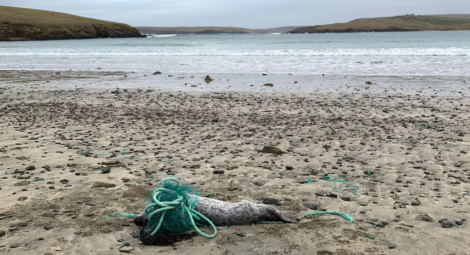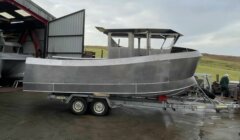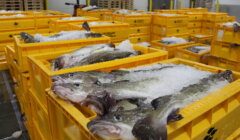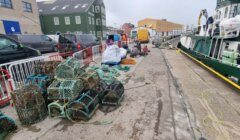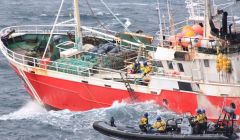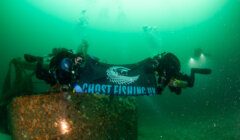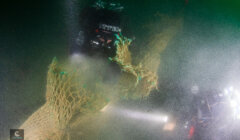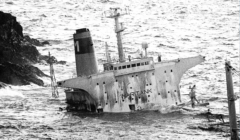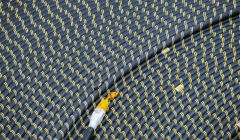Environment / Dead seal highlights dangers of discarded fishing nets
THE DEVASTATING impact discarded fishing gear can have on wildlife has been brought into sharp focus once again after a dead seal was photographed on a Shetland beach tangled in netting.
The seal washed ashore at Spiggie in the South Mainland and was found on Monday.
A photo of the seal was shared on Twitter by wildlife photographer Hugh Harrop, who said it appeared the young Atlantic Grey seal entangled to death in a discarded gill net.
He said it showed the “harsh reality of how wildlife is suffering from the 1000s of tons of ‘ghost gear’ polluting our oceans”.
Harrop told Shetland News this was just the “tip of the iceberg” and added that he had never seen a seal so entangled.
NatureScot marine advisor Karen Hall said the seal was reported to the Scottish Marine Stranding Scheme.
So sad to see this young Atlantic Grey Seal entangled to death in a discarded Gill net and washed ashore at Spiggie, Shetland. Apologies if the images upset you but this is the harsh reality of how wildlife is suffering from the 1000s of tons of ‘ghost gear’ polluting our oceans. pic.twitter.com/OemQhlxkbQ
— Hugh Harrop Wildlife (@HughHarrop) February 9, 2022
“It’s clear to see it’s pretty horrific,” she said.
Hall said gill nets were “not something that the Scottish fleet use, so it’s probably from offshore somewhere”, although it is difficult to determine if the gear was lost deliberately or accidentally.
She added that when the UK was in the European Union there was quite strong bycatch regulations, but things are in a “transition phase at the moment”, with efforts ongoing to replace the legislation.
It is also not clear if there is a marked increase in marine animals getting caught in netting – with not everything coming ashore.
Become a member of Shetland News
But discarded gear is not a new problem, with gill netting often hauled up by the local fleet.
Shetland Fishermen’s Association previously said discarded nets not only pose a navigational hazard, but they also pollute the seas with plastic, damage marine life and can undermine the reputation of the local industry through pictures of beaches littered with rubbish.
Following the seal photos the association said it will continue its campaign “against the irresponsible and dangerous gill netting operations being run by visiting vessels in the waters around Shetland – to the endless frustration of local fishing crews”.
A spokesperson highlighted that the local fleet is signed up to the Fishing For Litter scheme, “our pelagic nets are recycled, and our boats will do everything in their power not to lose trawling gear at sea because of high replacement costs – compared to this cheap green monofilament nylon gill netting”.
In 2020 a motion was approved by Shetland Islands Council to make formal representation to the Scottish Government on the issue of discarded fishing gear in waters around the isles.
Meanwhile Northern Isles MP Alistair Carmichael recently secured an offer of a meeting with the secretary of state for environment, food and rural affairs to discuss the ongoing issues around gillnetters near Shetland.
He said “gillnetter boats, predominantly Spanish-run, have become notorious in the area for intensive fishing and aggressive behaviours towards other vessels”.
Carmichael previously proposed an amendment to the Fisheries Act 2020 to improve safety at sea after a high-profile incident of a gillnetter, the Pesorsa Dos, appearing to attempt to foul the propellor of a local boat.
Become a member of Shetland News
Shetland News is asking its readers to consider paying for membership to get additional perks:
- Removal of third-party ads;
- Bookmark posts to read later;
- Exclusive curated weekly newsletter;
- Hide membership messages;
- Comments open for discussion.
If you appreciate what we do and feel strongly about impartial local journalism, then please become a member of Shetland News by either making a single payment, or setting up a monthly, quarterly or yearly subscription.






